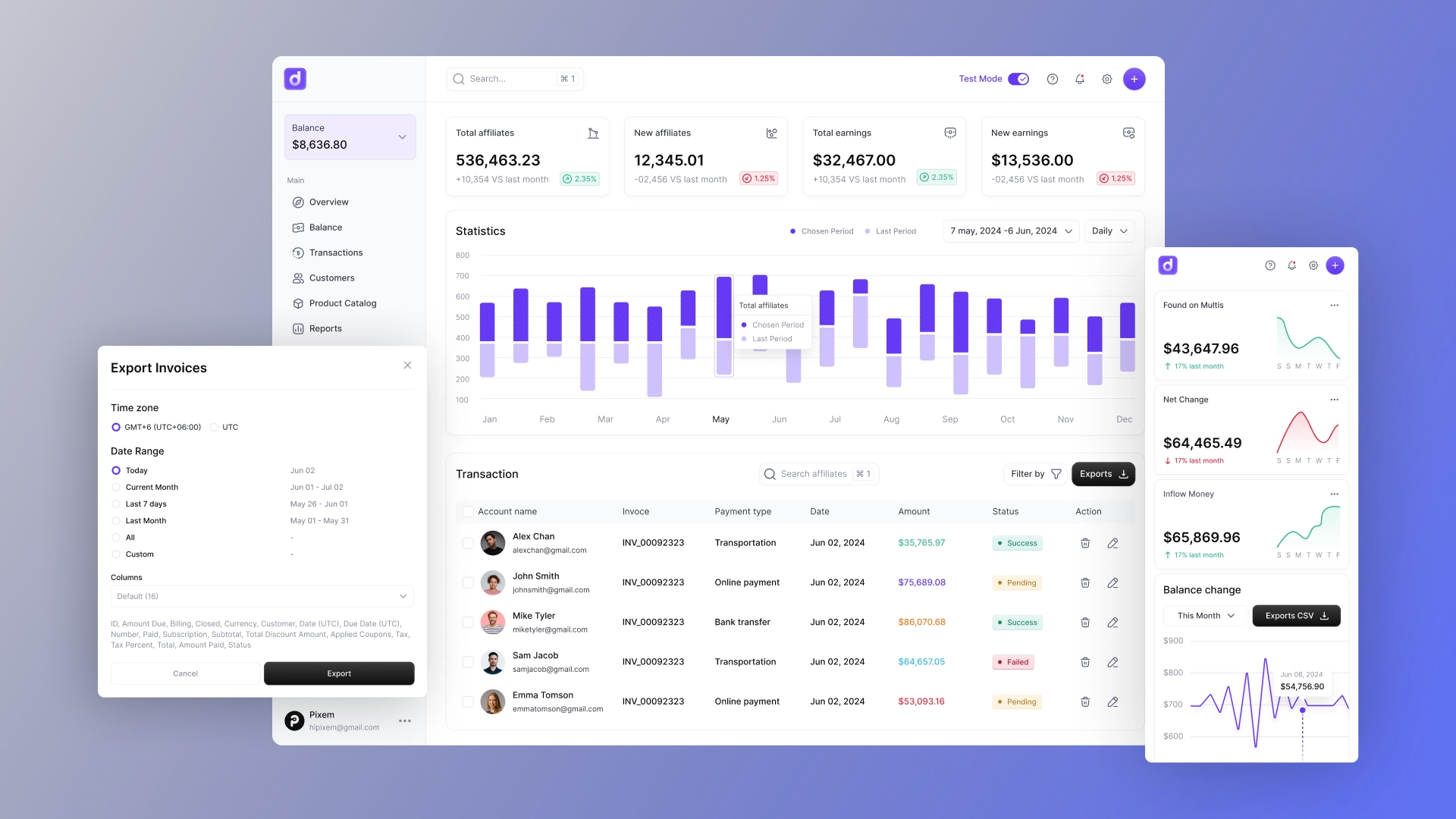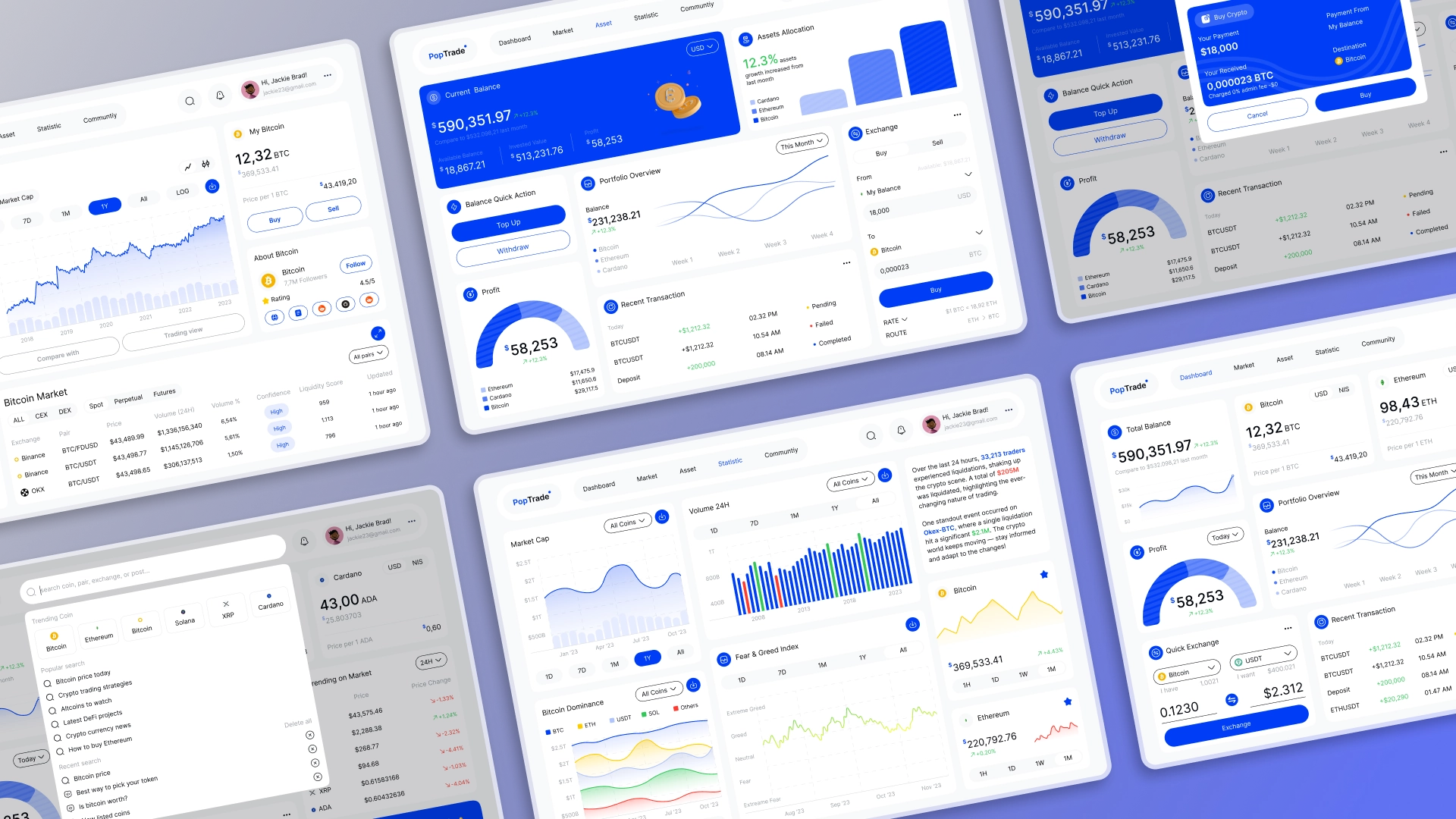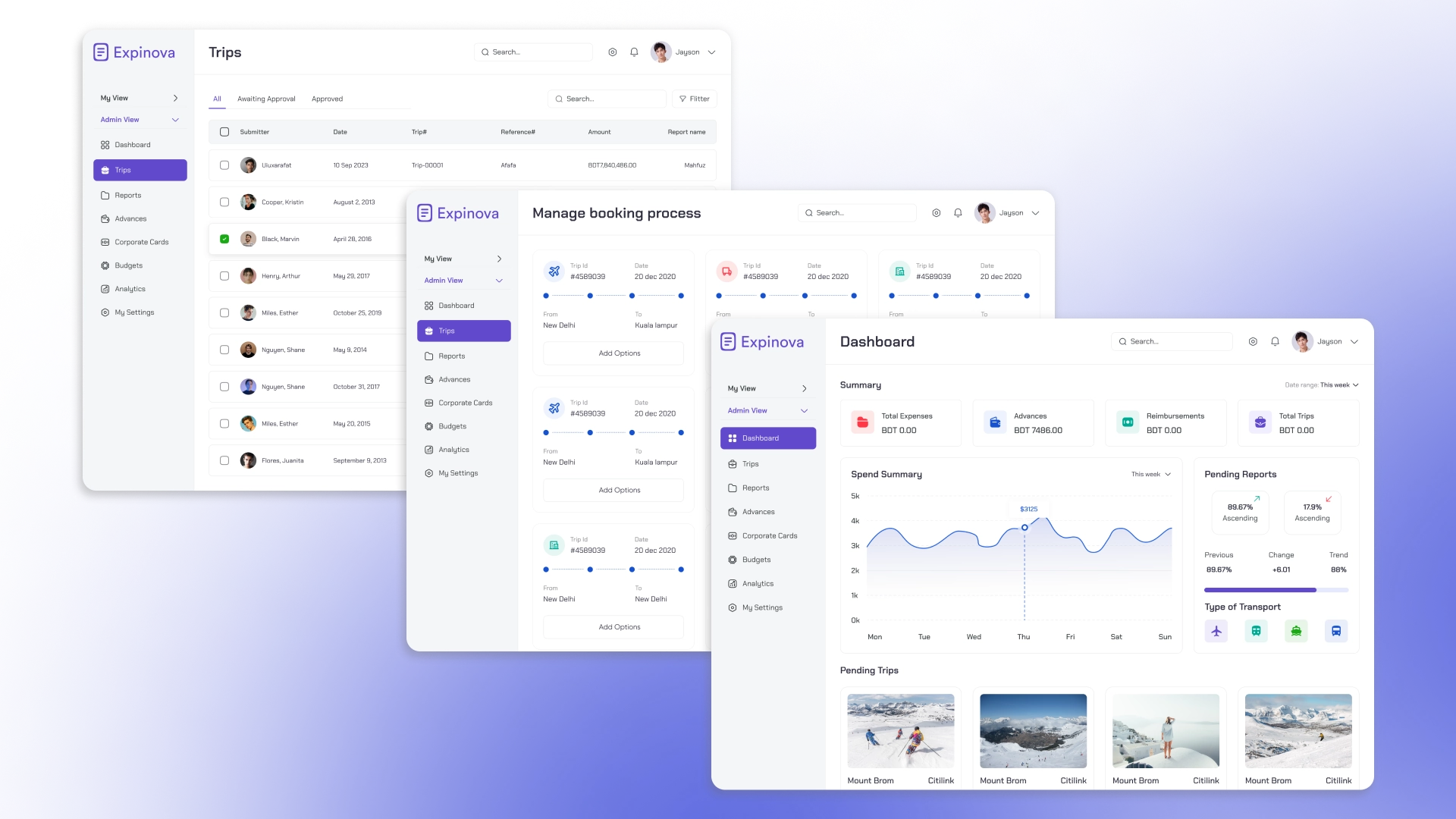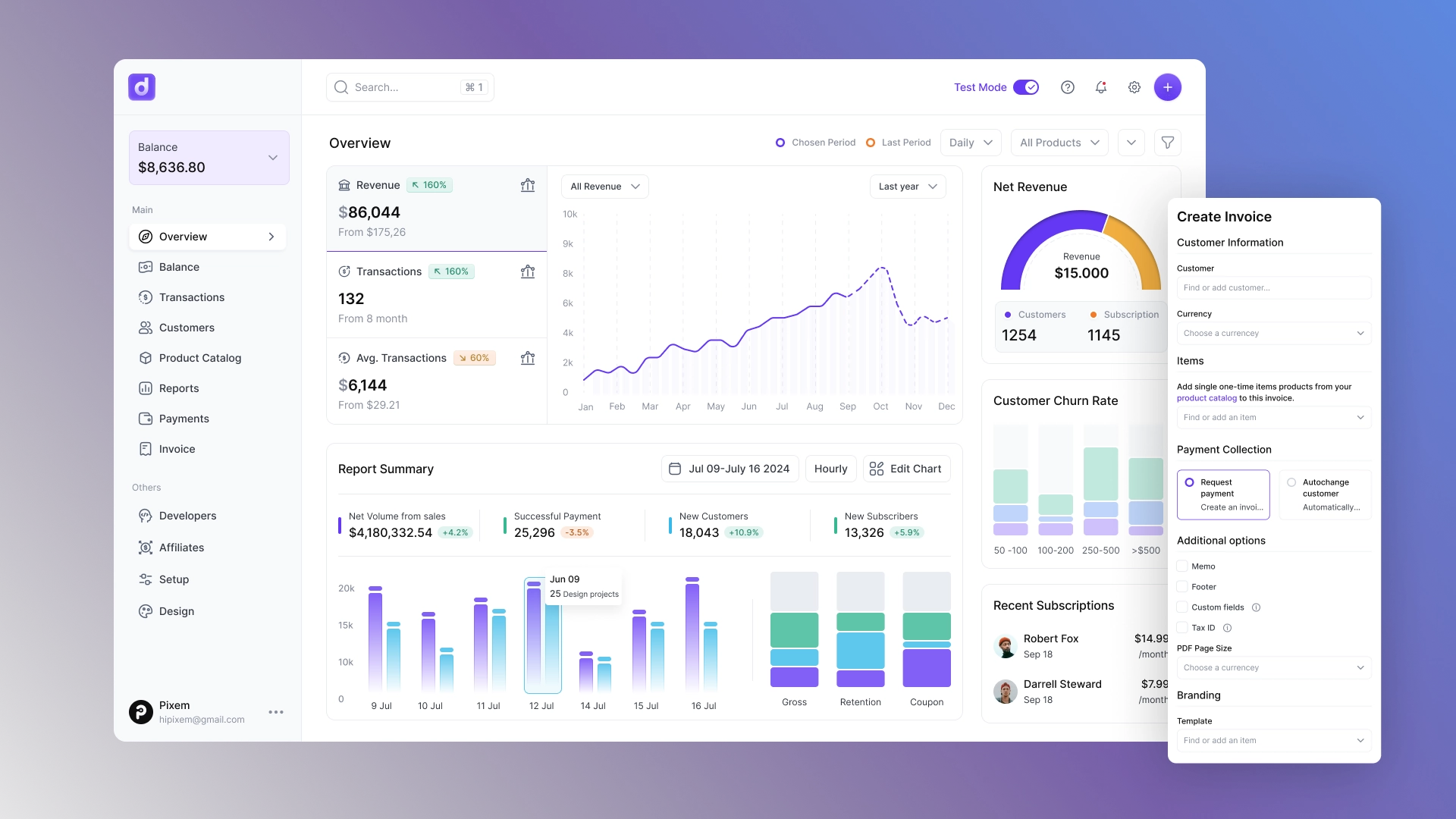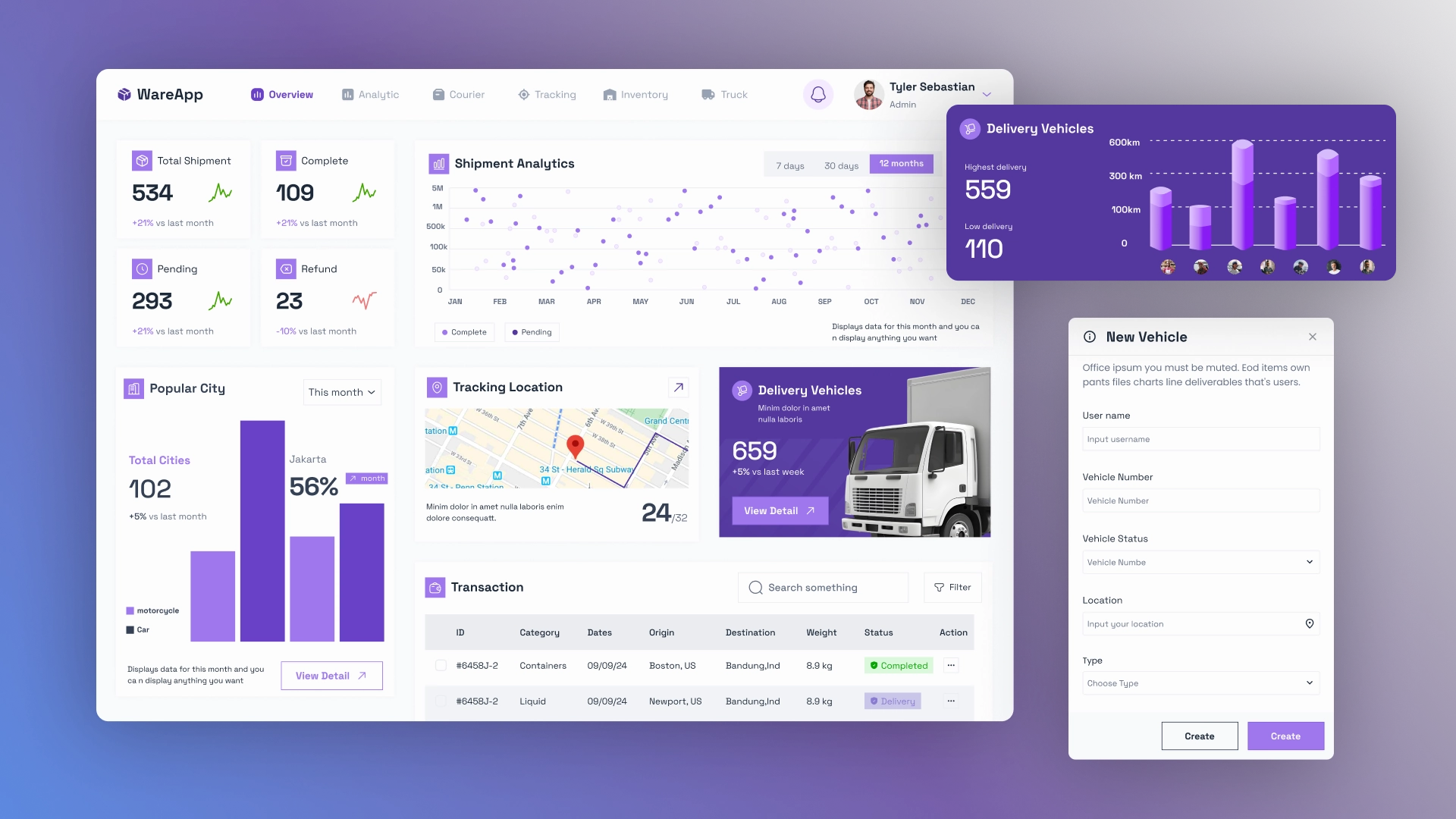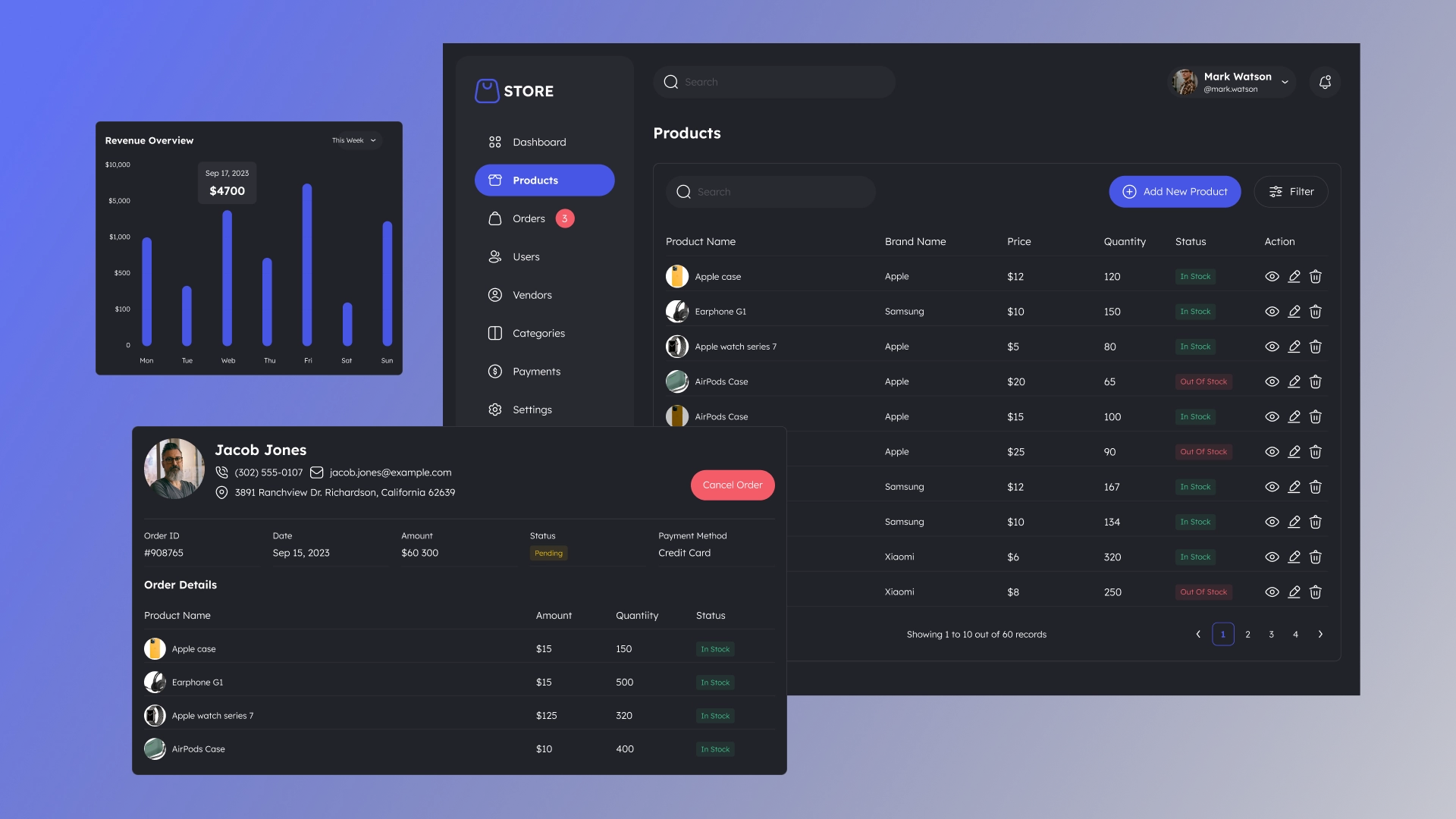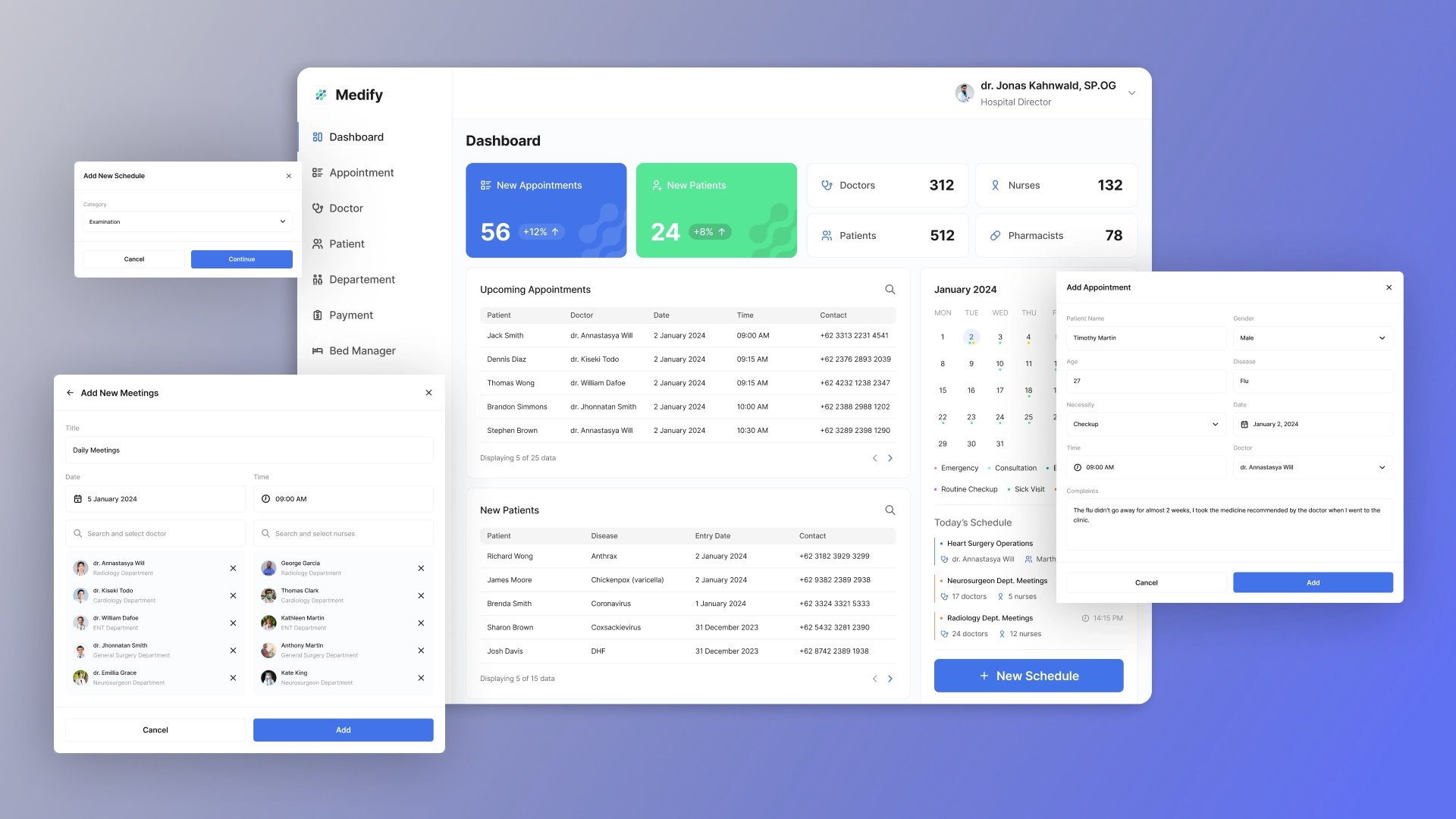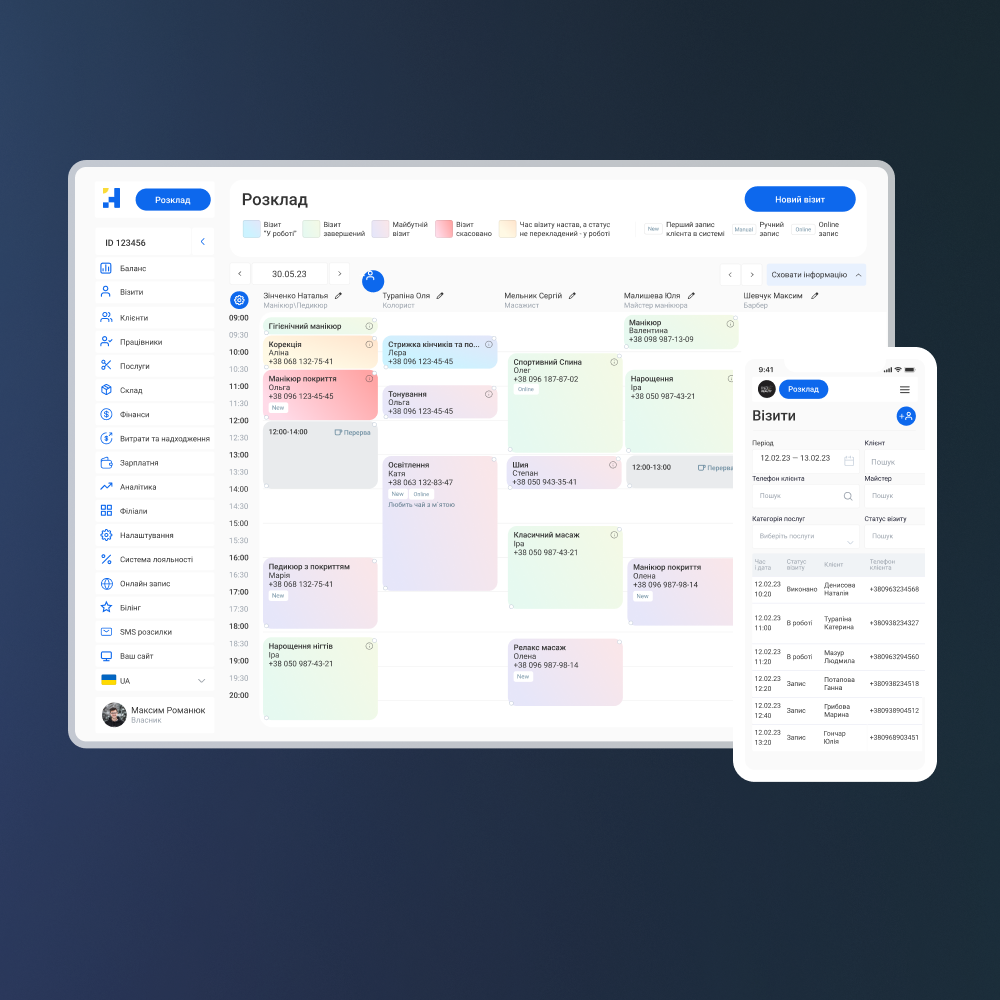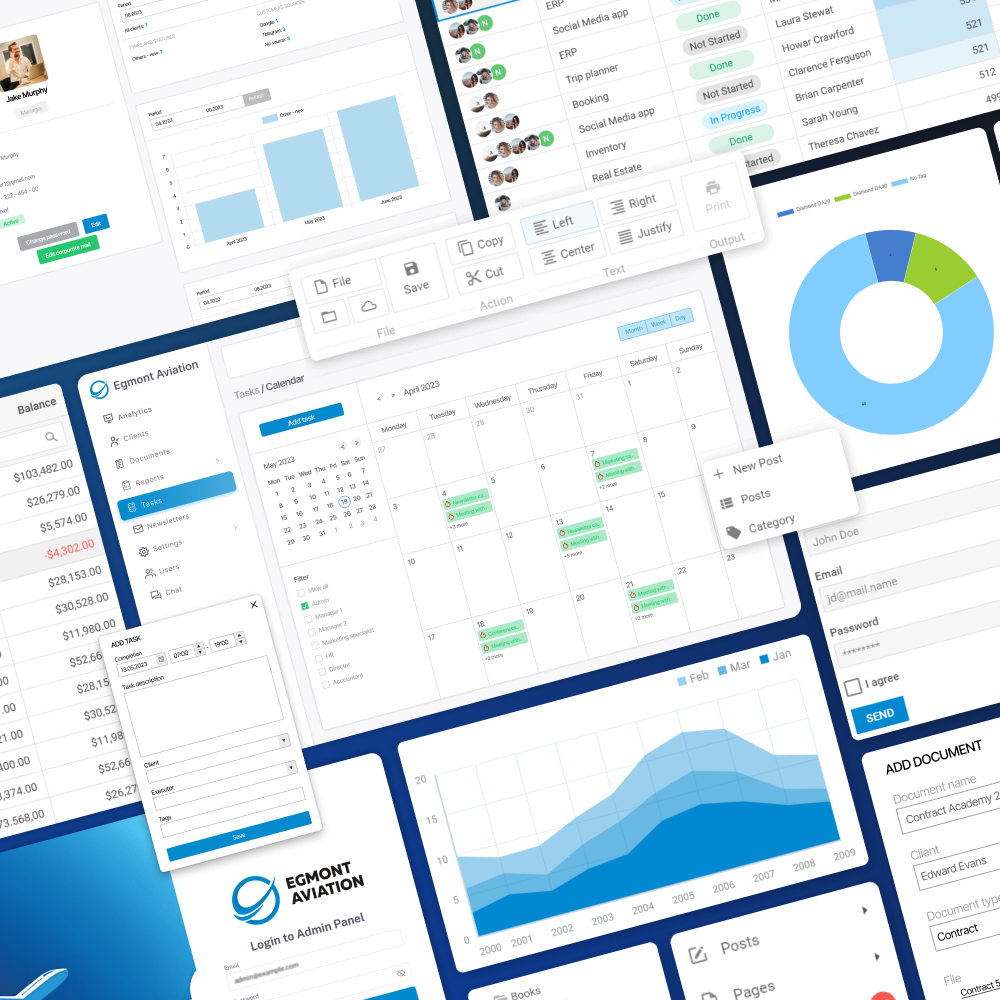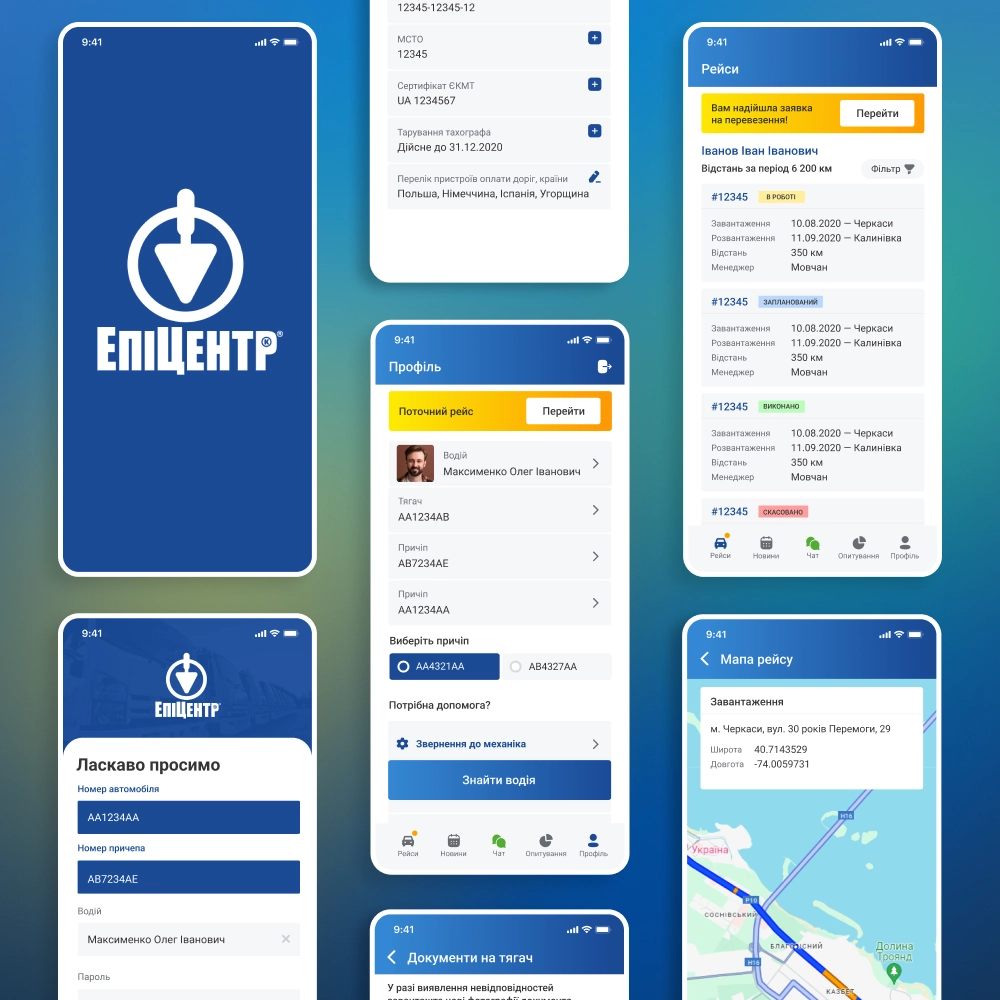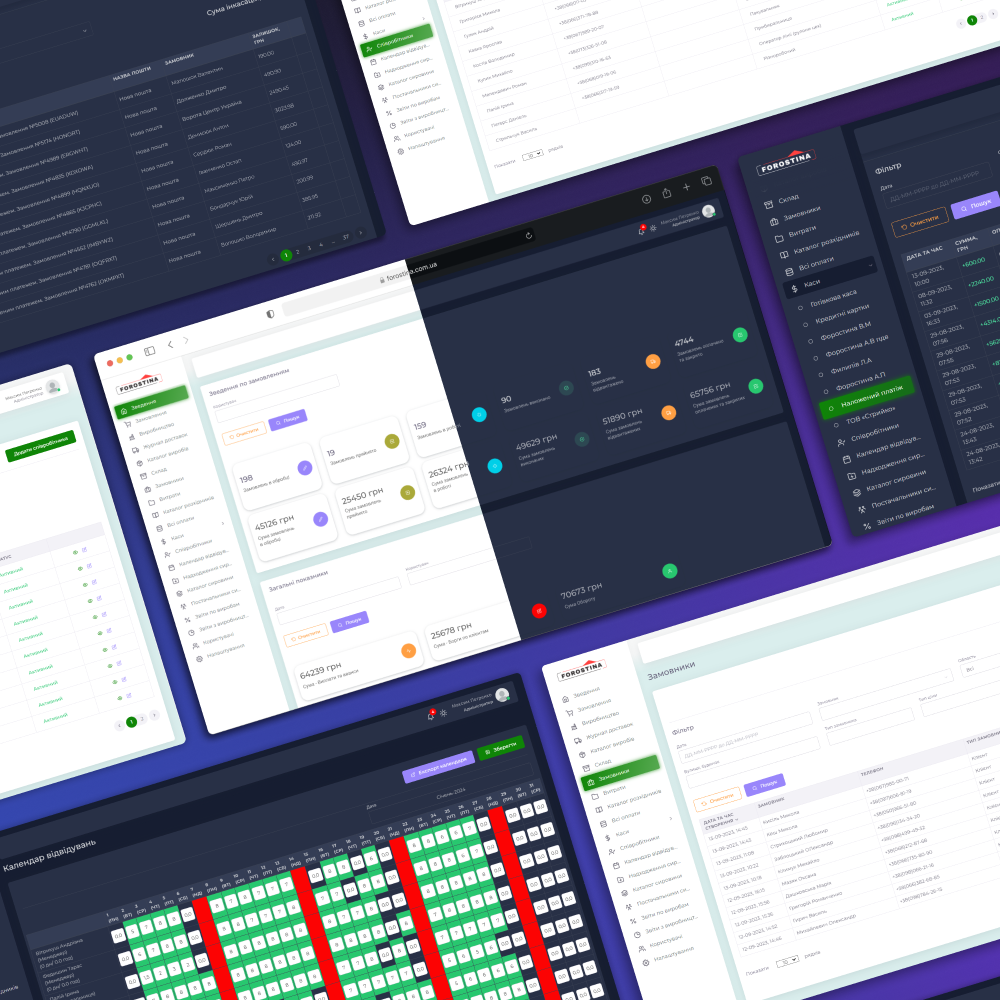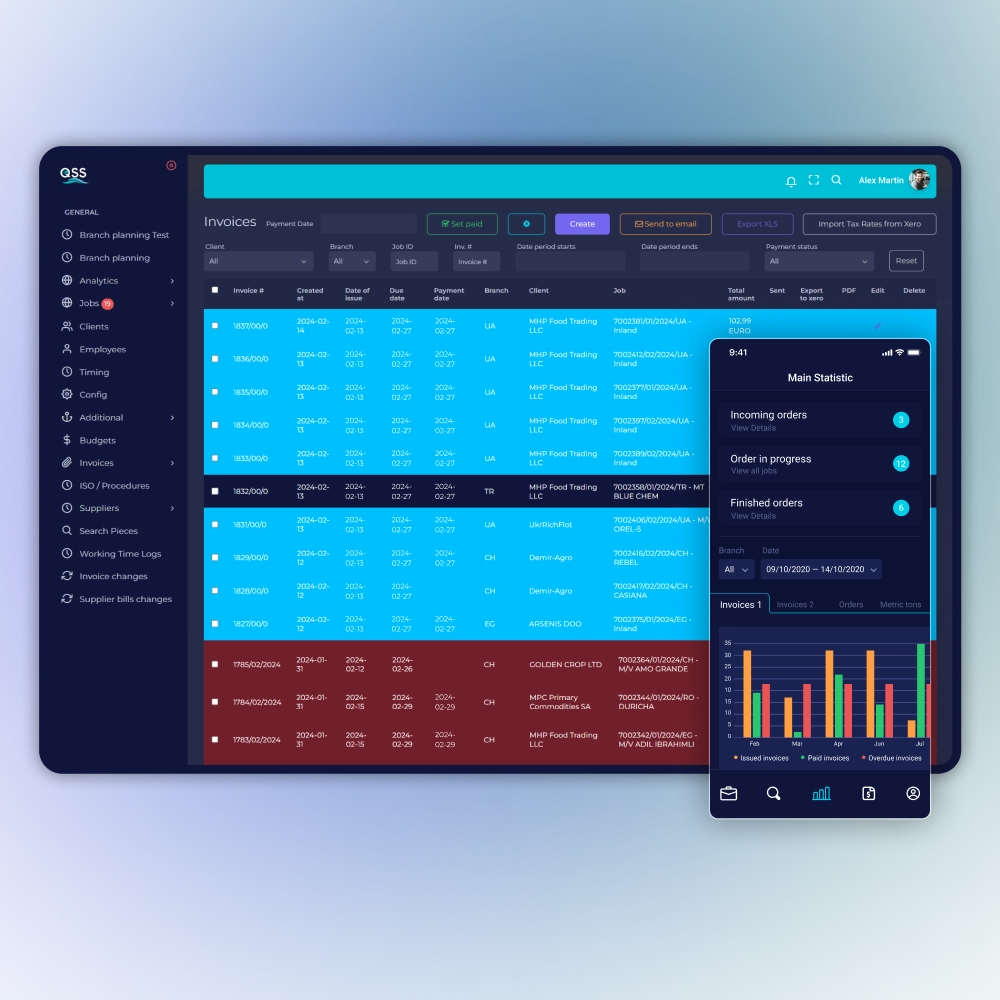









Development of accounting software for business automation
Accounting and analytical software help simplify and speed up daily business tasks. They replace routine manual processes such as inventory management, tax reporting and logistics with automated operations, increasing their accuracy and efficiency, and reducing the burden on staff.
Our experienced experts will help you design and develop custom accounting software so that you can enjoy lightning-fast business processes and focus on growing your company without being distracted by tedious routine operations.
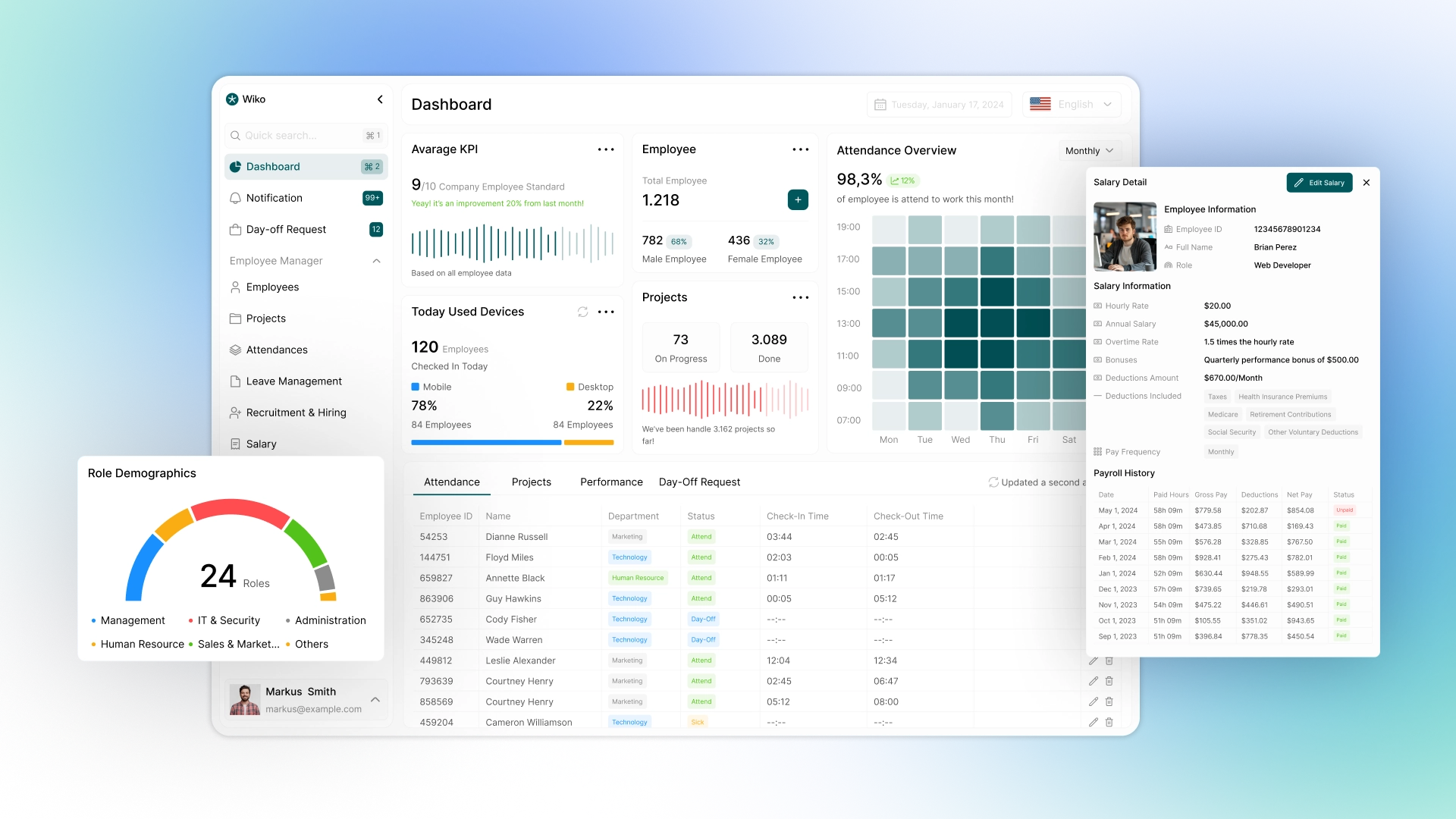
Why do you need business process automation?
Automation of business processes is an important tool for increasing the efficiency and competitiveness of a company. It allows you to reduce costs, improve the quality and speed of tasks, and also frees up resources that can be redirected to achieving more important goals, such as business development.
Let's take a closer look at the main reasons why you should invest in automating your business:
- Cost reduction. Automation can significantly reduce operating costs by reducing manual labor and increasing process efficiency. This leads to more efficient use of resources and reduced costs of completing tasks.
- Productivity increase. With automation, your employees can focus on more complex tasks where human input is critical, increasing overall company productivity.
- Speeding up processes. Automated systems perform tasks faster than a human, which reduces process completion times and speeds up the delivery of services to customers.
- Improved quality and accuracy. Automation reduces the likelihood of errors associated with the human factor, which reduces the financial and reputational risks of the company, and also leads to an increase in the quality of services provided.
- Process standardization. Automation allows you to establish uniform standards for performing tasks, which helps improve control and manageability of processes.
- Analytics and reporting. Automated systems collect and process data in real time, allowing company management to make informed business decisions.
What advantages do accounting programs provide to companies in different areas of business?
Automation is needed by any modern company that aims to develop and optimize its internal processes. At the same time, each business niche has its own unique tasks, features and technical needs, so we suggest taking a closer look at how accounting programs improve the work of companies from different areas:
- Finance and accounting. Accounting programs help automate the accounting of financial transactions, calculation of taxes and wages, creation of reports and budget control.
- Logistics. Automation of warehouse accounting allows you to optimize the processes of inventory, tracking of cargo transportation and replenishment of stocks.
- Production. In industrial companies, accounting programs are necessary for planning production processes, quality control of final products and resource management.
- Trade and retail. Automation systems for trade operations, sales accounting, assortment management and pricing increase the efficiency of stores and retail chains. As a result, this helps increase sales.
- Healthcare. Automation of medical services accounting, patient management, medication accounting and medical reporting improves the quality of medical care and the management of medical institutions.
- Education. In educational institutions, accounting programs help automate schedule management, progress recording, work with curricula, and management of educational resources.
Stages of developing an accounting program in AVADA MEDIA
To create high-quality accounting programs, we use the latest technologies, advanced experience of our experts and best practices, which allows us to implement the best digital solutions that take into account the individual needs of the client’s business. In our company, the accounting software development process consists of several key stages, each of which is aimed at implementing an impeccable final product. What are these stages? We suggest taking a closer look:
- Analysis. We conduct a detailed study of the customer’s specific requirements and determine his business goals. We record the results of the analysis in the design documentation and, based on them, form the concept of the future product.
- Prototyping. We develop the architecture of the accounting program, define the main components of the system and the logic of their interaction, and then visualize them in an interactive prototype. Such a mockup helps to identify and eliminate possible problems in the early stages, as well as agree with the customer on all project parameters to avoid misunderstandings in the future.
- Design development. We draw interface layouts and develop UX elements taking into account the aesthetic and functional features of the project in order to create an intuitive and attractive visual environment for the accounting program.
- Development. This stage includes the implementation of the client and server parts of the project at the code level. Frontend developers create the user interface and ensure it functions correctly on different devices, while backend developers develop business logic, databases, and APIs.
- Testing. QA engineers conduct functional, load, and integration testing of the system in order to identify and eliminate possible errors and defects in the system’s operation, to ensure high quality of the final product and its full compliance with the client’s requirements.
- Release. After development and testing are completed, the accounting program is deployed on servers and put into operation. Before integrating the system into the client’s business, we conduct a final check and train staff, which ensures a smooth and easy transition to using the new product.
- Support and development. Regular improvement and updating of the accounting program in accordance with changing business requirements ensures the long-term effectiveness and relevance of the system. Therefore, after the release, we offer clients full technical support of the project for as long as necessary.
What technologies do we use to develop accounting programs?
To develop accounting programs, our specialists can use a variety of technologies that ensure the functionality and security of the software, and the choice of a specific stack depends solely on the individual needs of each project. In particular, to implement your digital solution we can use:
- For the client part. Standard HTML/CSS, JavaScript, or React.js and Vue.js libraries to create complex and functional interfaces.
- For the server part. Python and Django/Flask frameworks - for working with large volumes of data or projects with ML and AI. The Java language and the Spring framework are used for the development of large enterprise systems with microservice architecture. The PHP language and its frameworks Yii2 and Laravel - for creating high-load web systems.
- Database. We can use SQL and NoSQL databases. The former are great for complex queries and transactions, while the latter are great for efficiently processing large amounts of information by distributing data across multiple servers.
- API. To develop an API, we can use Express.js, Django REST Framework, Spring Boot and other tools. It all depends on the main programming language of the project.
Why is it worth starting cooperation with AVADA MEDIA
Process automation plays a vital role in the development of modern business - it reduces costs, increases the speed of decision-making and minimizes the burden on staff. We understand how important this is to your company and offer fast, elegant, and reliable software development to help you achieve your business goals.
Our specialists provide:
- Rapid development - using a flexible development process and the vast experience of our experts, we guarantee that your accounting program will be ready on time and without delays.
- High performance - we select the right and modern technologies, and also take into account the latest trends in order to create the most effective solutions with instant response.
- Competitive prices - we take an individual approach to creating a budget for each project and already at the start we fix the exact cost of development, which remains unchanged until the release.
If you are planning to implement an accounting program in your business, contact us. We will help you design and develop the optimal technical solution for your company.
Questions and answers
-
Is it possible to integrate a new accounting program with existing systems that we use in our work?
Yes, sure. Our developers will perform API integration of the new accounting program with all the necessary programs and services to ensure effective data exchange between different systems. This will improve the overall productivity and functionality of your business.
-
What support do you provide after release?
We offer full technical support after the project is released, which, in particular, may include prompt correction of errors, development of functionality in accordance with changing business needs, as well as updating security mechanisms so that your data is always reliably protected.
-
How long will it take to develop and integrate an accounting program?
The speed of development and commissioning of an accounting program depends on several factors, including the complexity of the product and the specific requirements of the client. To speed up development without sacrificing quality, we carefully think through the specifications, which allows us to avoid lengthy edits, and also involve a sufficient number of qualified experts in the development to meet the deadline you need.


